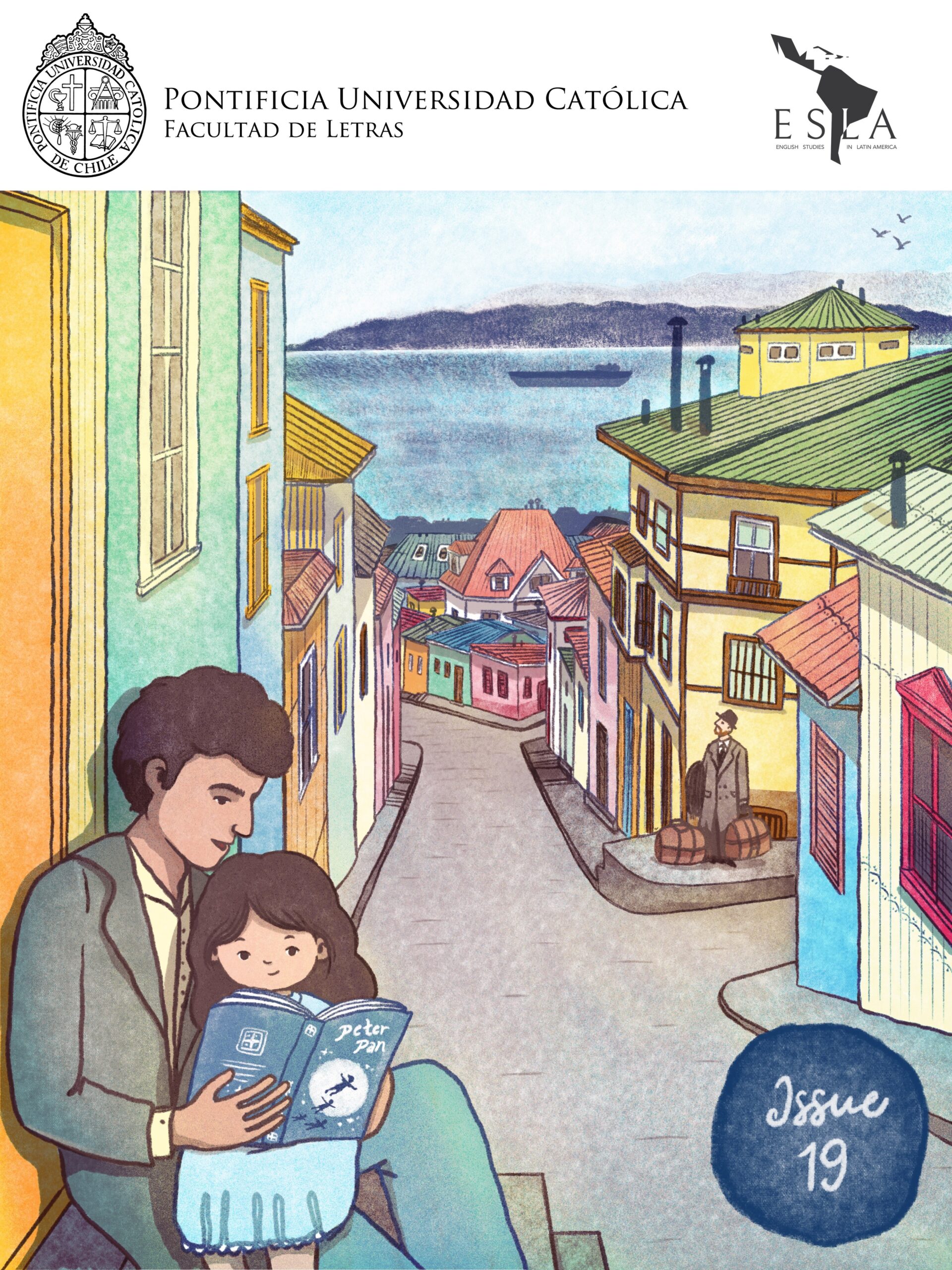Henry Edward Swinglehurst: A Poet in Valparaíso’s Anglophone Press
DOI:
https://doi.org/10.7764/ESLA.60839Abstract
At the beginning of the 20th century, Henry Edward Swinglehurst (Manchester, England, 1852 - Valparaíso, Chile, 1924) published a series of articles and poems in the Anglo-Chilean newspaper The Chilian News (1913-1915), in addition to two books of poetry: Valparaiso Songs (London, 1913) and Patriotic Poems (London, 1924). Of English parentage and a merchant by profession, he emigrated to the Chilean port, where he married Isabel Contreras Mendoza and managed the Swinglehurst iron business. In the context of the British empire, his role as a businessman, in literary circles, and in the Anglophone press of nineteenth century Valparaíso is especially interesting due to its hybrid nature. His poems reveal a bicultural imaginary, with references to Chilean spaces and stereotypes as well as to those of England. Moreover, his poems develop an intriguing focus on domesticity and landscape aesthetics that defies the masculine stereotypes of his day. In this essay, we situate Swinglehurst’s poetry within the larger context of what is sometimes termed Britain’s “informal empire,” analyzing it for the insights it provides into one man’s experience in the contact zone, as well as into the larger dynamics of transculturation in early twentieth century Valparaíso. Swinglehurst’s texts reflect deep attachment to two homelands and a consequent dual identity that is not without affective tensions. In our essay, we problematize his work from the perspective of cultural mediations, building on his participation in a newspaper that we consider an example of “foreign language press” (Diana Cooper-Richet, Bénédicte Deschamps), typical of migrant communities in their process of cultural adaptation to the host country, but focusing primarily on his poetry.
Key words: H.E. Swinglehurst, valparaíso, anglo-chilean, foreign language press, cultural mediations
Downloads
Downloads
Published
How to Cite
Issue
Section
License

This work is licensed under a Creative Commons Attribution-NonCommercial-NoDerivatives 4.0 International License.


